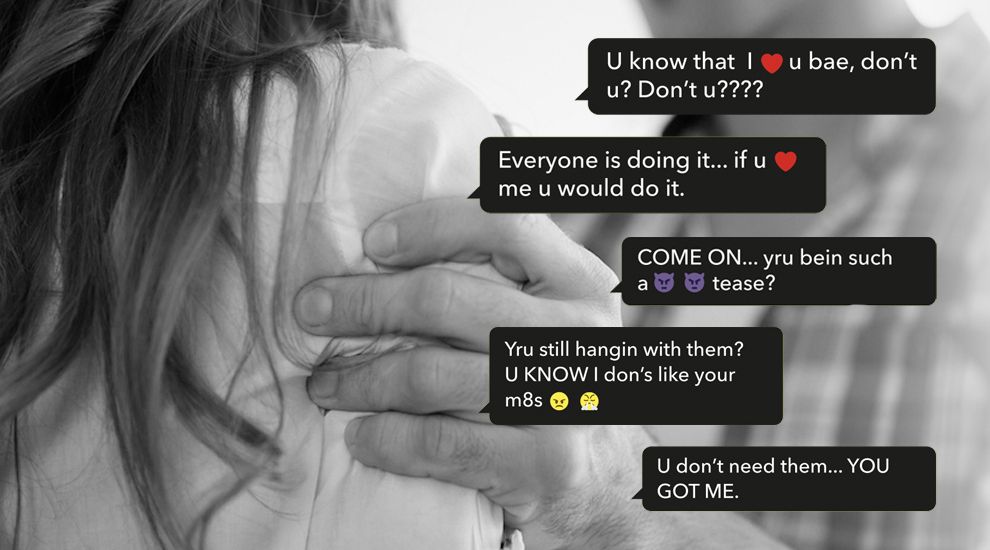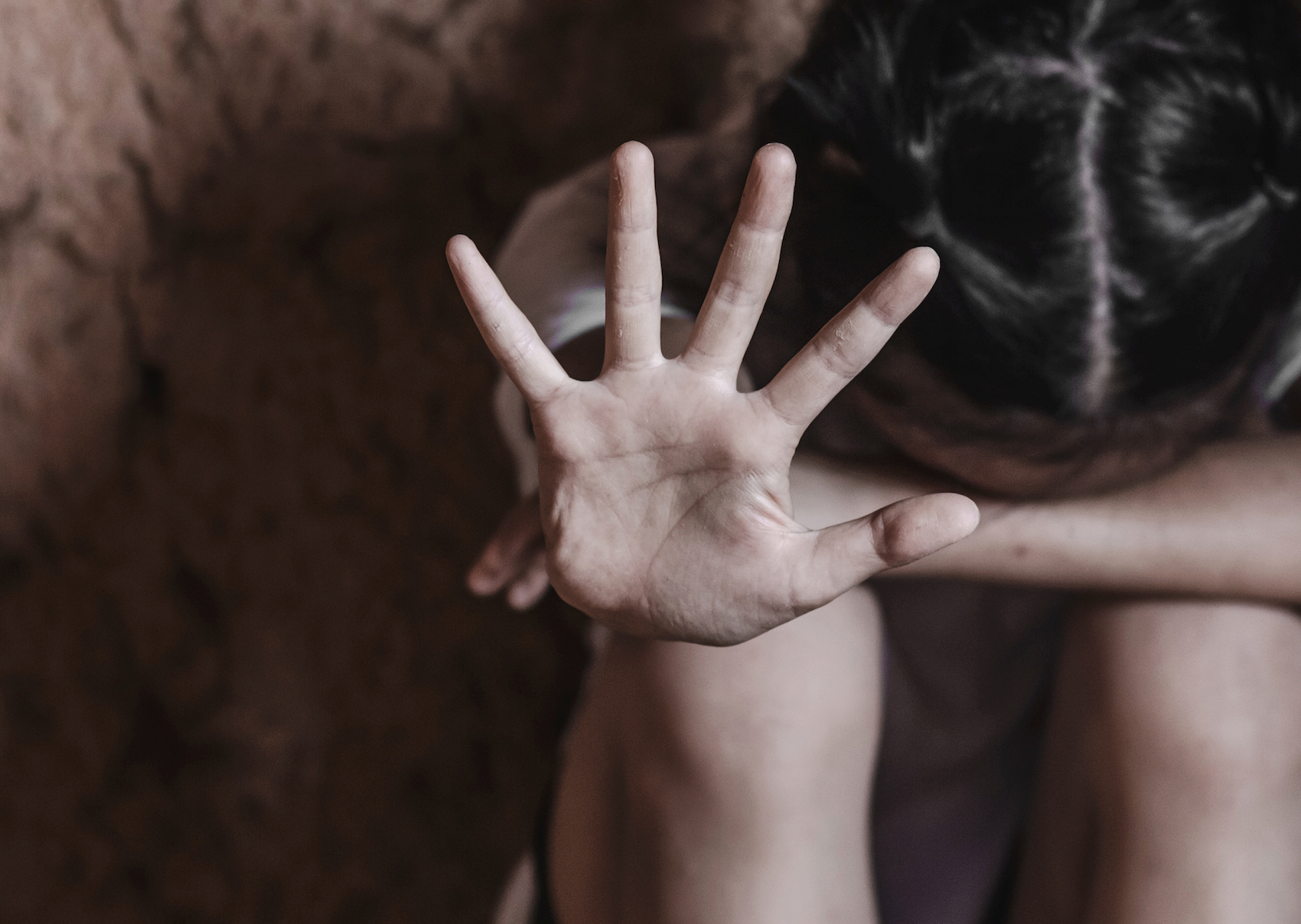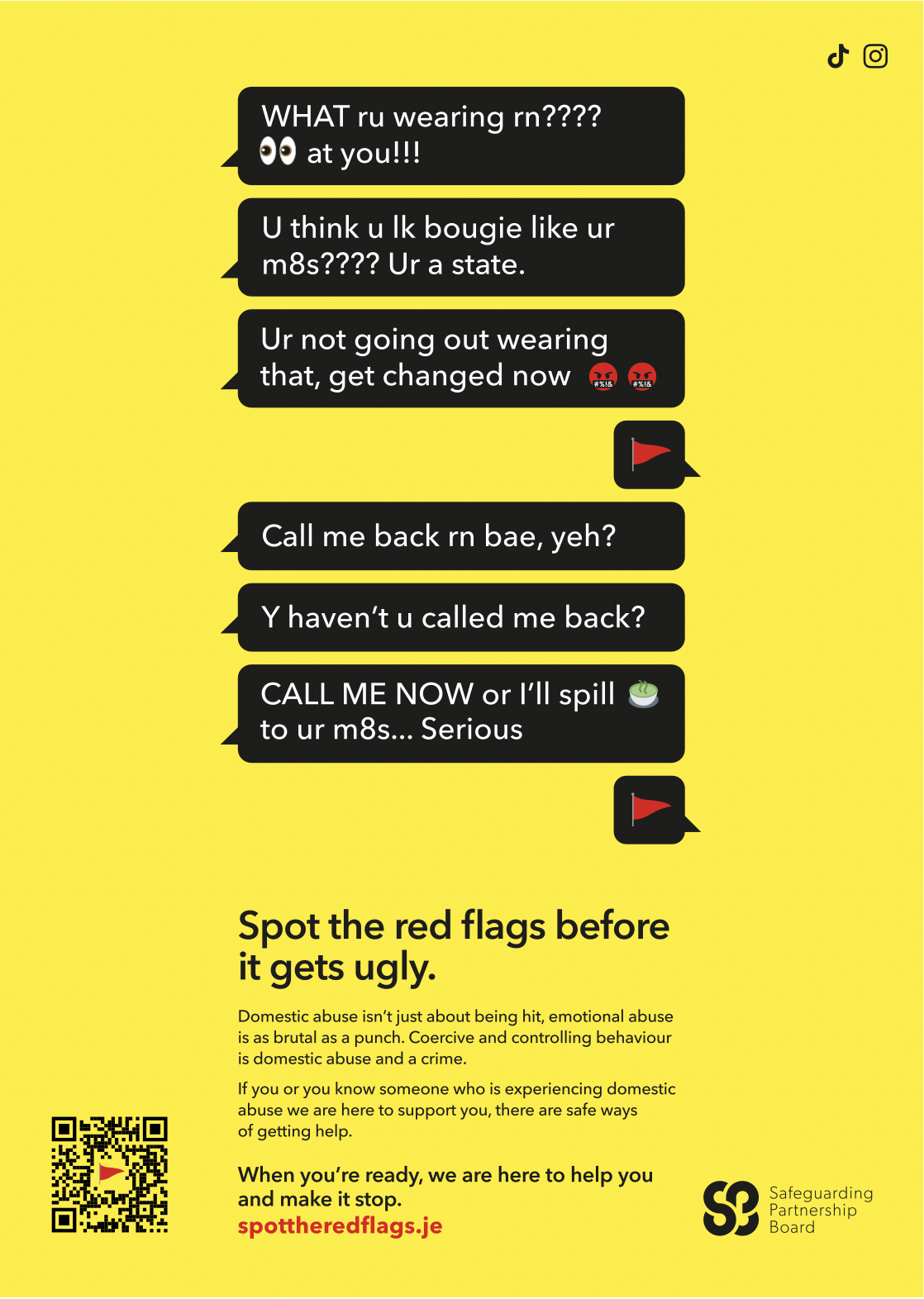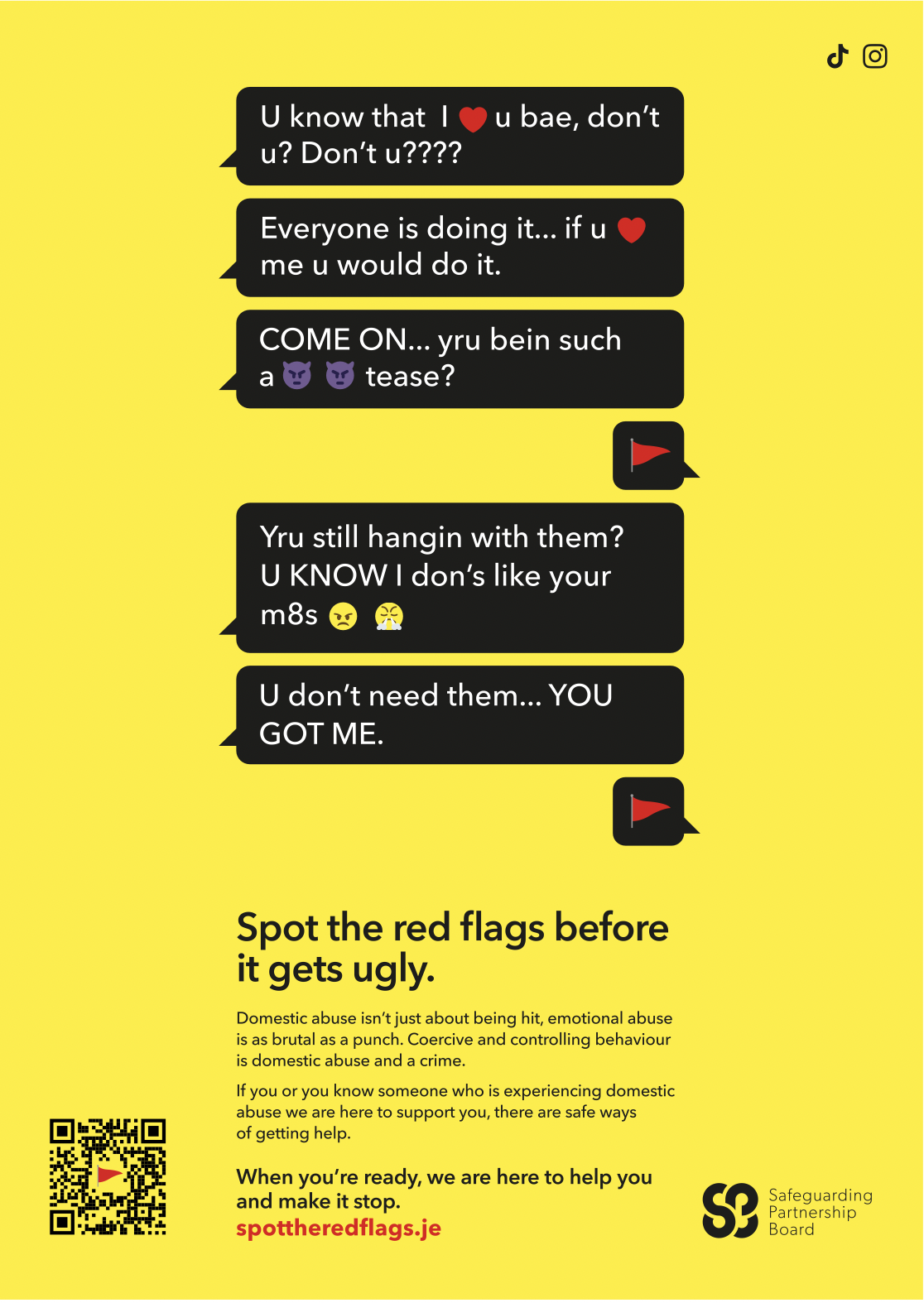


An islander has opened up about her experience of domestic abuse in a bid to help others 'spot the red flags' in a relationship.
Kate's* story was released this week as part of a new document outlining a new strategy for tackling domestic abuse in Jersey, which was launched alongside a new awareness-raising campaign.
The strategy, which covers 2022-2024, was drawn up by the island's Safeguarding Partnership Board, working alongside an array of agencies ranging from the Police to the Women's Refuge, Youth Service and the Health Department.
As well as considering physical abuse, the strategy also looks to cover coercive control and other, more psychological forms of abuse - something Kate* has direct experience of.
Her story is not only a first-hand account of domestic abuse, but offers an illustration of just how vital it is for potential victims to be able to recognise and respond to abusive behaviours...
“Looking back maybe I should have seen that my relationship was abusive from the start, at the time I just thought I had struck luck and found the person meant for me. I was happy, we were happy, it was all I wanted.
I became completely dependent; I felt like I couldn’t make any right decisions and that I needed them to approve everything I did. I felt that everything I did could be criticised. I was left unable to make even the simplest of decisions. I felt that if I didn’t have their approval there would be consequences.
The chains of control locked long before any violence was shown, keeping me where I was, making me blame myself and believing that I deserved what I got. I felt that anything could cause conflict, so I stopped seeing friends and family as it was easier and the best way to avoid confrontations. I had to make sure I was home on time after work or buying food or I would get thousands of questions about where I had been. A few times I had to send pictures of being in the supermarket to prove where I was.
Making sure the only person I could turn to in the world was them. So convincing, they made me question my own mind – was I crazy, did that actually happen, or had I left them no choice but to harm me because of who I was?
There were times that I felt I deserved what was happening and that I wasn’t a good partner. My self-confidence and self-worth were so low that I would just believe anything they told me and I didn’t have the energy to disagree with anything.
It took me a long time to realise what was happening wasn’t okay. I still question my decision making and feel that I can’t make my own choices because that’s how I felt for so long. I felt that I would never be able to anything and this was the situation I had got myself into and no one could help me.
I would like this strategy to protect people who don’t realise what domestic abuse is at first. To protect people who are not physically abused by their partner but the emotional abuse is just as significant on their lives. I didn’t know how much I was being controlled until it was really bad and then I felt that I couldn’t do anything about it. I felt that there was nothing I could do because they weren’t physically hurting me and who would believe me when to everyone else seemed so nice. I believed that what was happening was normal or that I should accept it.
I would like this strategy to help victims know that controlling behaviour isn’t okay and that they can be protected. I would like this strategy to give other victims the awareness that 5 they will be taken seriously and encourage them to report what is happening to them because something can be done about it and you don’t have to cope on your own.
I would also like victims to feel that they are protected from the point of reporting. It is a scary thing to do, you don’t know what will happen next, if your partner will find out you have reported and what they would do when they know. This was what I was most fearful of, and I needed the reassurance that whatever the outcome I would be protected.”
Kate is one of many islanders to have sadly experienced domestic abuse during her lifetime.
Domestic abuse is an extremely broad term covering a range of different kinds of abuse and can include, but is not limited to, psychological, physical, sexual, financial, economic, and emotional kinds of abuse.

Pictured: 15% of reported crime in Jersey is as a result of domestic violence.
Safelives, a UK based domestic violence charity, has estimated that 11,300 women in Jersey will have experienced domestic abuse at some point since they were 16, with 2,900 experiencing it within the last year.
Moreover, 15% of all recorded crime in Jersey is due to domestic violence with the Police attending 1149 domestic abuse incidents in 2021.
The last Safeguarding Partnership Board strategy was published in 2019.
However, following an uptick in such cases during the pandemic, and the approval of a new Domestic Abuse Law, which recognises domestic abuse as a specific punishable offence in Jersey, a new strategy was put together.
It has three key priorities...
Fundamental to the strategy is challenging attitudes that allow domestic abuse to happen in the first place and encouraging islanders to break their silence.
The aim is to change the thought process around victims of domestic abuse from “why doesn’t he/she leave?” (the victim) to “why doesn’t he/she stop?” (the perpetrator).
Special attention will also be given to children, to help them identify the signs of abuse.

Pictured: The SPB's new initiative, the Spot The Red Flags Campaign, aims to help people identify the signs of domestic violence.
More guidance will be given in schools under the strategy, and there will be more engagement with young people in the community.
The strategy also aims to encourage supportive workplace policies.
A 'spot the red flags' advertising campaign launched this week - including on Instagram and TikTok - to help with the process of educating islanders.
The strategy also outlines the need to improve the speed with which a victim of survivor receives help, as often the point where a victim gets help is at a stage where the abuse is escalating in frequency or severity.
It also looks to improve the availability of so-called 'perpetrator programmes' for individuals who are worried about their own behaviour and want to work to stop it escalating. The strategy says the Prison and Probation Service have a role to play in this.
The plan also seeks to have mental health professionals appropriately trained to recognise abuse.
The strategy emphasises that those suffering from abuse should be able to get help quickly, meaning frontline agencies have to have a consistent and informed approach.

Pictured: A further example of the Spot the Red Flags Campaign
Crucially, the strategy emphasises that any measure put in place by an agency should not increase risk to the victim and stipulates that perpetrators should not be allowed to manipulate processes.
The strategy notes that the key way to hold perpetrators of domestic abuse to account is through the criminal justice system, and encourages everyone working with victims or survivors of domestic abuse to do so in a trauma-informed way and to exploit the protective powers given to Police by the new Domestic Abuse Law.
Click HERE to read the new strategy in full, and HERE to learn more about how to 'Spot the Red Flags'.
*Name changed to protect identity.
Comments
Comments on this story express the views of the commentator only, not Bailiwick Publishing. We are unable to guarantee the accuracy of any of those comments.